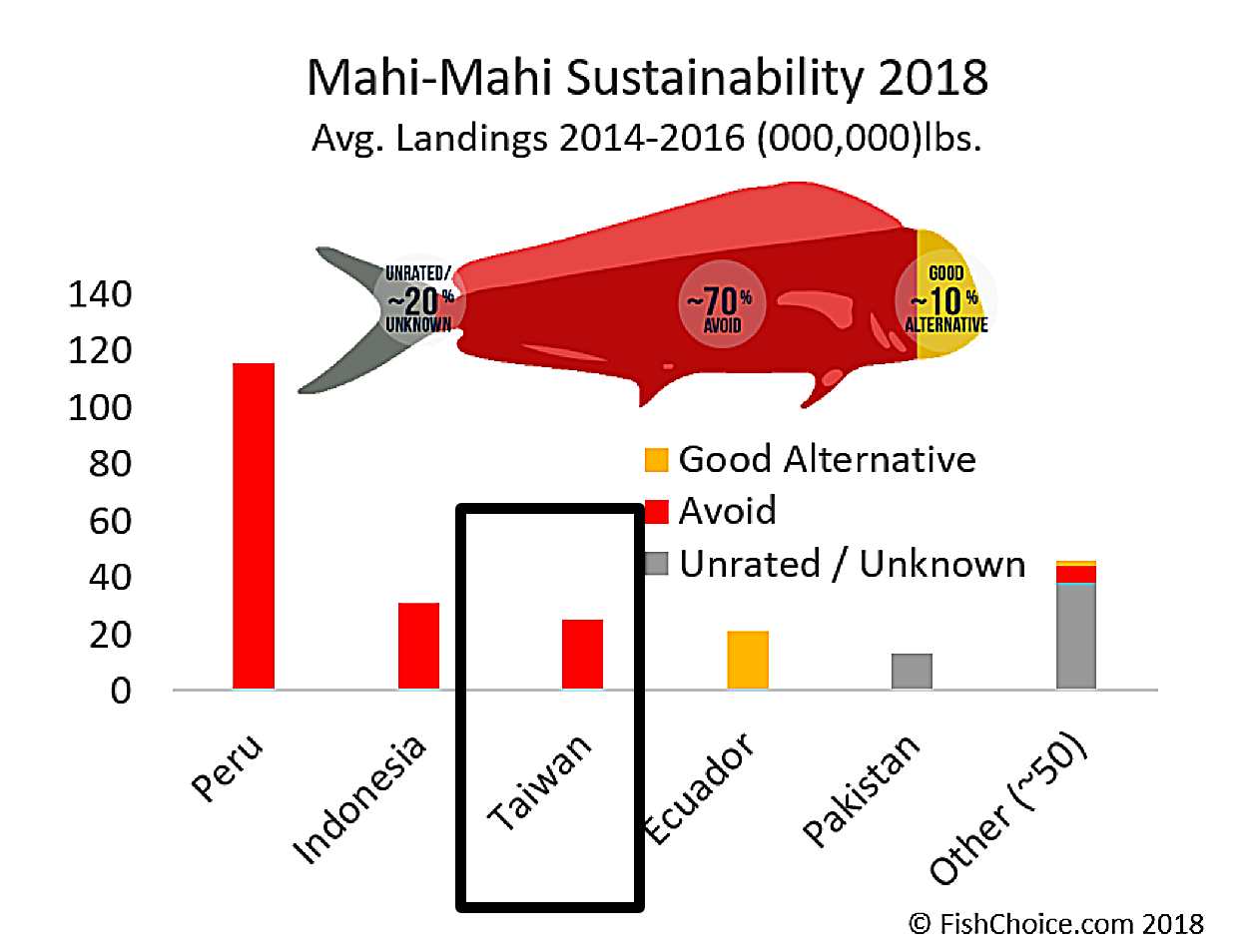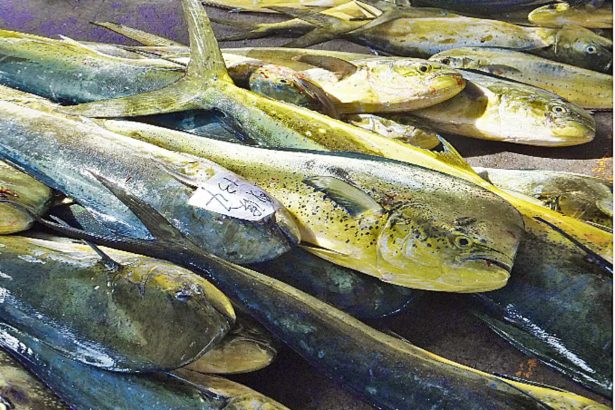Xu Chengyi / Taiwan Guitou Dao, listed as a "should be avoided" fish species by FishChoice in the United States? It's not fair, but how to face it?
239 share
Guitou Dao, also known as mackerel (Note 1), is a rich species in summer. Taiwan catches about 10% of the world's Guitou Dao, including offshore and offshore fisheries, nearly 90% of which are exported to the United States, but it is relatively rare on the table in Taiwan.
The market price of the ghost knife has fallen sharply this year, and the hindrance to exports to the United States market is one of the main reasons. Although Guitou Dao is the first fish species in Taiwan fishing industry to implement FIP and log on to the international website, due to the failure to implement the unloading declaration, it is reported that the Guitou Dao caught in Southeast Asia was exported to the United States, resulting in the return of the United States to the market.
In addition, Fish Choice, which dominates the trend of seafood consumption in the United States, listed ghost-head knives from Taiwan and Peru as "should be avoided" in 2018, making Taiwan's ghost-head knife industry even worse. Guitou Dao is a delicious fish species with good ecological resilience. It is worth understanding how to strengthen management and make it a representative fish species in Taiwan.


Photography / Xu Chengyi
The resources of Guitou knife are in good condition, but they must be supplemented by good management of accurate declaration.
In the past, many catches of Guitou knives along the coast did not declare their catches, but with the requirements of the United States for declaration, the reporting rate has increased significantly in recent years. Therefore, according to the statistics, the catch soared in 2017, but the market refrigerated trading volume did not increase at the same time, we can see that this increase is not "catch" but "declared quantity".
The same problem should also exist in other offshore catches that are not exported in Taiwan, that is to say, Taiwan's actual catch along the coastal waters may be three times or more than the official statistics!
Because Guitou Dao itself has good resource resilience and is not an important target fishing species in the world, the resource situation is generally considered to be "good" (Note 6). However, with the increasing fishing pressure of marine resources, the demand for ghost knives is also increasing rapidly. No matter how many fish are not well managed, they will be arrested one day, and the first step in management is to establish the correct number, which is still not widely recognized in Taiwan. In Taiwan, the declaration of unloading fish still stays in the misconception that "it needs to be done because of export requirements."
It is precisely because the unloading declaration has not been really implemented, the incident of "using other countries' fishing ghost knives as Taiwan's head knives" has also broken out, which has been questioned by the United States that the poor quality has affected the overall market situation, because the systems such as fish unloading declaration and fishermen's logs have not been really implemented. What's more, the black sheep can take advantage of it, affecting the livelihood of the industry as a whole.
The US "Fish Choice" lists Taiwan as "should avoid eating" to affect the market.
Taiwan's management of ghost knives can not keep up with the demand of the United States, while the United States accounts for nearly 90% of Taiwan's output, making Taiwan's ghost knife industry have huge hidden worries. This hidden worry lies in Fish Choice, which dominates the trend of seafood consumption in the United States. In 2018, Guitou Dao from Taiwan and Peru was listed as "should be avoided" (Note 7), plus a negative impact on food ethics in Taiwan.
The evaluation data used by Fish Choice are mainly from Seafood Watch, while Seafood Watch's assessment of Guitou Dao, on page 52 (Note 8), believes that although there is a lack of scientific basis for judging Guitou Dao resources all over the world, it is generally agreed that the fish resources are in a healthy state.
According to the report, the ghost head knives from local fishing in the United States are mainly from towing, a fishing and other small fisheries are "Best Choice (the best choice)", offshore small purse seine and small longline catch from Ecuador are "Good Alternative", and ghost head knives from Taiwan and Indonesia are due to the use of large purse seine fishing method and large tuna longline fishing method of "FAD electronic fish collector" (Note 9). There are concerns about the acquisition of resource-sensitive fish species (concern), and there is a lack of sufficient and effective management information, so seafood is classified as "Avoid (should be avoided)" (see Note 10 for original excerpt).
A detailed explanation should be given to the ghost knife operation mode of offshore fishing and offshore fishing.
From Seafood Watch's explanation, we can clearly feel that since they know more about seafood production in the United States than in Taiwan, even though Taiwan does not use FAD in offshore fishing, but catches with small coastal longlines and set nets, there is no problem of mixing seabirds, sea turtles and other resource-sensitive species. But it is still listed as "should be avoided" seafood like most of the ghost knives caught at sea.
Of course, these seafood in Taiwan often have due management laws and regulations, such as lack of declaration, which need to be strengthened, but effectively distinguish between different fishery products, establish detailed production information, and provide detailed evidence from similar foreign institutions with specific empirical evidence. Only in this way can we safeguard Taiwan's fishery reputation, and it is an urgent task to protect the rights and interests of producers and consumers.
Doing a good job in the declaration and preservation of fish is the way to last forever.
Guitou Dao has less fat and more moisture, and the focus of cooking is on how to keep the fish hydrated, so Hawaiians often eat it with flour to preserve the moisture of the fish. Guitou Dao is even more common in eastern Taiwan because it has good tendons and can produce Q-shot fish paste, so it is more common to see Guitou saber balls in eastern Taiwan. However, no matter what way it is cooked, the constant truth is to choose a ghost knife with perfect unloading declaration and fresh preservation, so that this good fish can find a sustainable way of operation!
Note:
1. Http://fishdb.sinica.edu.tw/chi/species.php?science=Coryphaena%20hippurus&tree=y
2. Http://www.fao.org/fishery/statistics/global-production/en
3. Https://www.fa.gov.tw/cht/PublicationsFishYear/index.aspx
4. Https://efish.fa.gov.tw/efish/statistics/reportmap.htm
5. Https://portal.sw.nat.gov.tw/APGA/GA03
6. Https://www.fishwatch.gov/profiles/pacific-mahimahi
7. Https://fishchoice.com/buying-guide/mahi-mahi
8. Https://www.seafoodwatch.org/-/m/sfw/pdf/reports/p/mba_seafoodwatch_mahi_blue_silky_shark_epo_report_longline_report.pdf
9. Https://en.wikipedia.org/wiki/Fish_aggregating_device
10. Seafood Watch's partial content summary on the classification of ghost knives:
Dolphinfish (aka mahi mahi) caught in the Best Choice. Atlantic with handlines, hand-operated pole-and-lines or trolling lines is a "Best Choice." The population is likely stable, and overfishing is a low concern. However, these fisheries also catch yellowfin tuna, which are depleted in the Atlantic. Management is rated moderately effective, and some conservation measures are in place for dolphinfish.
Dolphinfish caught in the Eastern Central Pacific in the unassociated purse seine fishery or by U.S.A., Ecuadorian and Panamanian fleets is a "Good Alternative." Management of these fisheries is rated moderately effective or effective, but the catch of endangered and overfished species remains a high concern.
All other imported sources of dolphinfish caught in the Atlantic, Pacific and Indian Oceans are on the "Avoid" list. Dolphinfish are primarily caught with drifting longlines or in floating object purse seine (FAD) fisheries that target tuna. The catch of at-risk species is a serious concern in these fisheries, and bycatch of sea turtles and seabirds is a critical concern in the South Atlantic. In addition, management of these international fisheries is rated ineffective. The status of dolphinfish in the Atlantic, Pacific and Indian Oceans is unknown or uncertain.
- Prev

Taiwan Guitou Dao, listed by the FishChoice of the United States as "should be avoided" fish species? It's not fair, but how to face it?
Taiwan Guitou Dao, listed by the FishChoice of the United States as "should be avoided" fish species? It's not fair, but how to face it?
- Next

Hakka righteous people make their debut in Xinpu, Hsinchu County, to pray for blessings with a small trip.
The 2019 Yimin Festival was held at the Yimin Temple in Xinpu, Hsinchu County. The ceremony of righteous people's Day (righteous people's sacrifice) is deeply representative in Hakka culture. It is the only intangible cultural asset that belongs to Hakka Village in the important folklore designated by the state.
Related
- A course of planting techniques and methods on how to grow carrots
- How to plant the latest tulips?
- Is it better to pick tea in the morning or in the afternoon? When is the best time for tea to be picked? what is the third or fifth tea?
- Launch Yuanxiao Happy combination Haocha + Tea Yuan healthy Taste
- Penghu Tourism "Fireworks 20 Parade with You"
- 2022 West Lake Happiness holds "Digital Revitalization Voucher" and draws iphone13 and laptop.
- Banqiao Fuzhou social houses are designed to change start-up combined with police elimination to create a safe and livable environment
- The convenient measure of "mechanical weeding" in Xinbei has been abused and the Agriculture Bureau has imposed heavy penalties on the illegal land consolidation.
- Changgeng University Joins Hands with Four Memory Factories to Rescue Memory Talent Shortage
- The list of Taiwan's top 100 MVP managers is listed by the Director-General of the Farmers' Association of Sanxia District.

